The Chinese Flexible and Printed Electronics Symposium entered its 10th year in 2019. On 23-25 October, the 10th symposium was successfully held in Suzhou. Since 2010 when the first symposium was organized, it has been held every year, including merging into two international conferences (ICFPE) in 2014 and 2018. In the last 10 years, printed electronics has drawn attention from both academia and industry. More and more research groups started developing the technology. Industry also started looking for opportunities to develop the technology for new products. Since SEMI (the global semiconductor industry association) got involved in flexible electronics, with the merge of SEMI and FlexTech Alliance, and the working committee on flexible electronics in China was established in 2017, the symposium became the SEMI’s global series of Flex Tech Symposiums, with its new name: Flex China.
Flex China 2019 aimed to set a platform for scientists and technologists to exchange ideas and the latest progresses in the field of flexible and printed electronics. This year, the symposium accepted 90 abstracts, from which 23 invited talks and 15 oral talks were programed, as well as 52 poster presentations. There were 3 plenary sessions in the afternoon of 23rd and in the morning of 25th. The whole day of 24th was devoted to 2 parallel sessions with topics including thin-film transistors, wearable electronics, energy devices, light emission and display, sensors, flexible and printed electronic materials. Over 200 people attended the symposium.
The plenary session featured talks from Mr wenda Zhang, the SEMI China service manager, and Mr. Dong Fu, the general manager of Juhua Printed Display Ltd. Both are from industry and their topics represents the two key trends in flexible and printed electronics, i.e. the merging of semiconductor integrated circuits (IC) with printing fabrication to enable flexible hybrid electronics, and the rise of printing as the new way to manufacture organic light emitting diode (OLED) display panels. Flex China 2019 also invited three overseas speakers. Professor Dauskardt from Stanford University of USA introduced his research in human skin for bridging human body and wearable electronic devices. Dr. Takeo from National Institute for Materials Science (NIMS) of Japan introduced their work on novel conductive inks for printing electrodes. Mr. Madea from Toyobo Japan gave an overview of standardization on garment type wearable electronics.
Another feature of this year’s symposium was to give speaking opportunities to young researchers and students. For example, Postdoctoral researcher Wangli Li from NIMS in Japan was invited to give a talk on his work in copper inks development. Postgraduate student Xiao Yang was given an oral presentation opportunity to talk about her work in graphene conductive inks. In the poster session, 15 expert referees were asked to judge on the merits of each posters and 3 best posters were selected among 50 posters. Xiaolian Chen from the Suzhou Institute of Nanotech, Siying Li from Shanghai Jiaotung University and Qingqing Sun from NIMS Japan won the first, second and third prizes of the best posters. The publishing house from the Institute of Physics (IoP) UK sponsored the best poster prizes and Ms. Lijuan Wang of IoP’s Beijing Office gave out the certificates and prizes.
New in this year’s symposium was the roadshow of startup companies to seek venture capital funds. Over 20 investment organizations attended to listen to 7 companies introducing their technologies, products and funding requirements. The products on show included conductive inks, inkjet printer, photonic sintering equipment, printed sensors, printed display materials and flexible wearable electronic apparatus. These products demonstrated that flexible and printed electronics already came out of laboratories to become a new industry.
At the end of symposium, the chair of Flex China 2019, Prof. Zheng Cui, expressed great gratitude to all the participants, the invited speakers and the volunteers who have made the symposium successful and he welcomed everyone to come next year to the Flex China 2020.
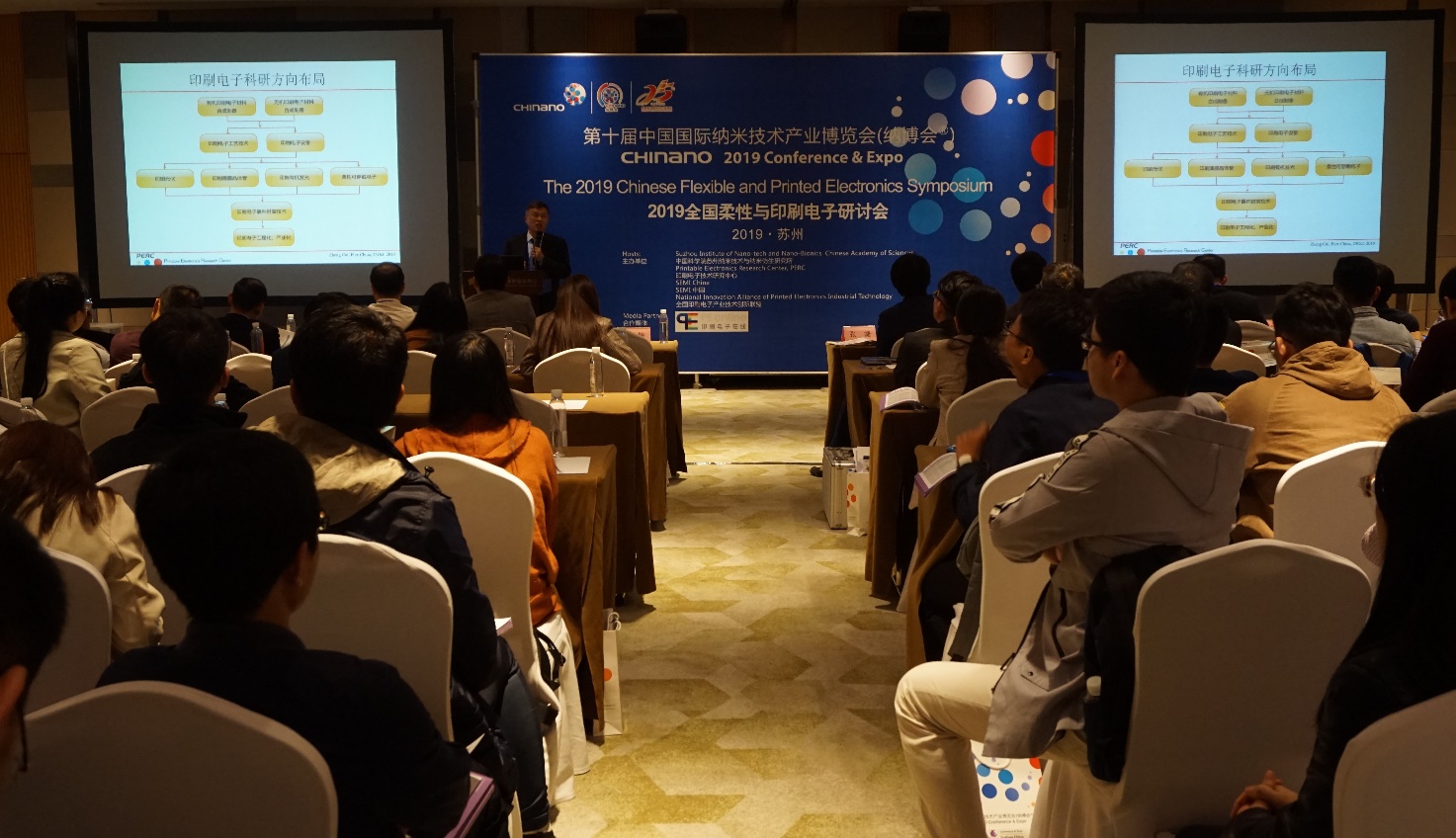
Plenary session of Flex China 2019
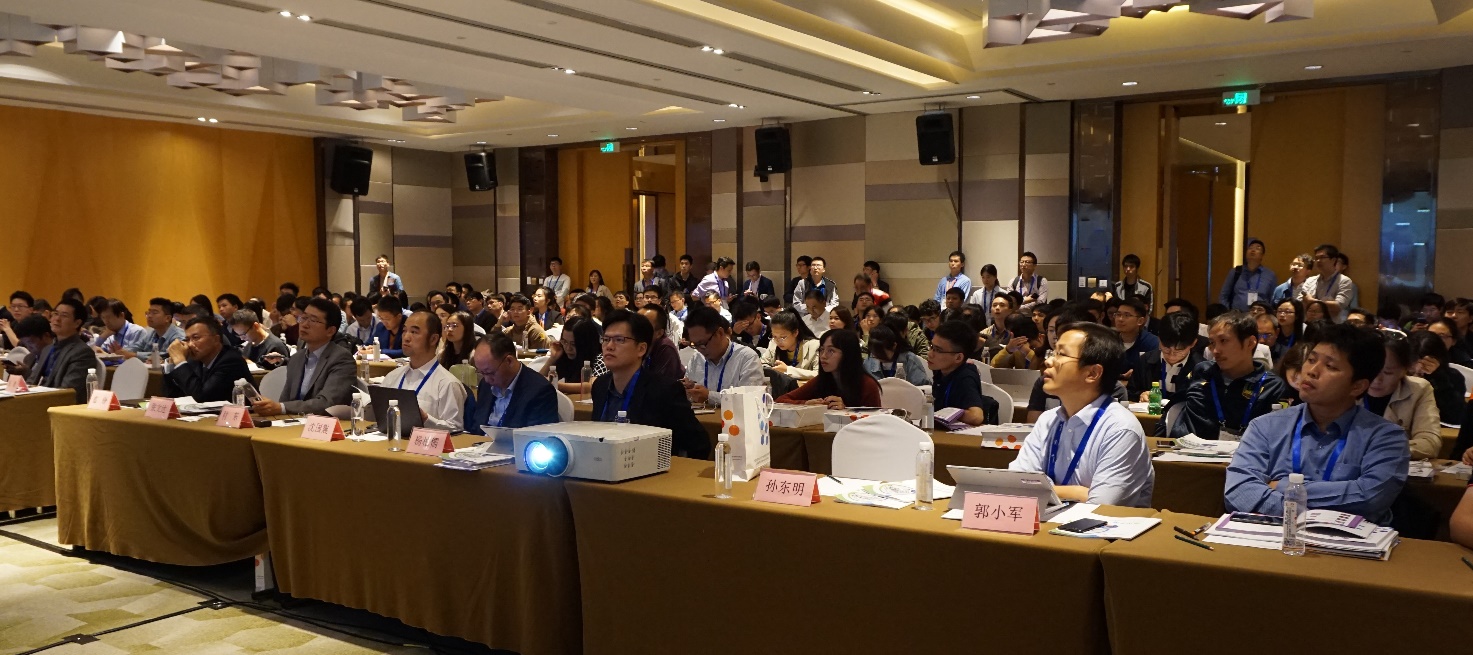
Plenary session of Flex China 2019
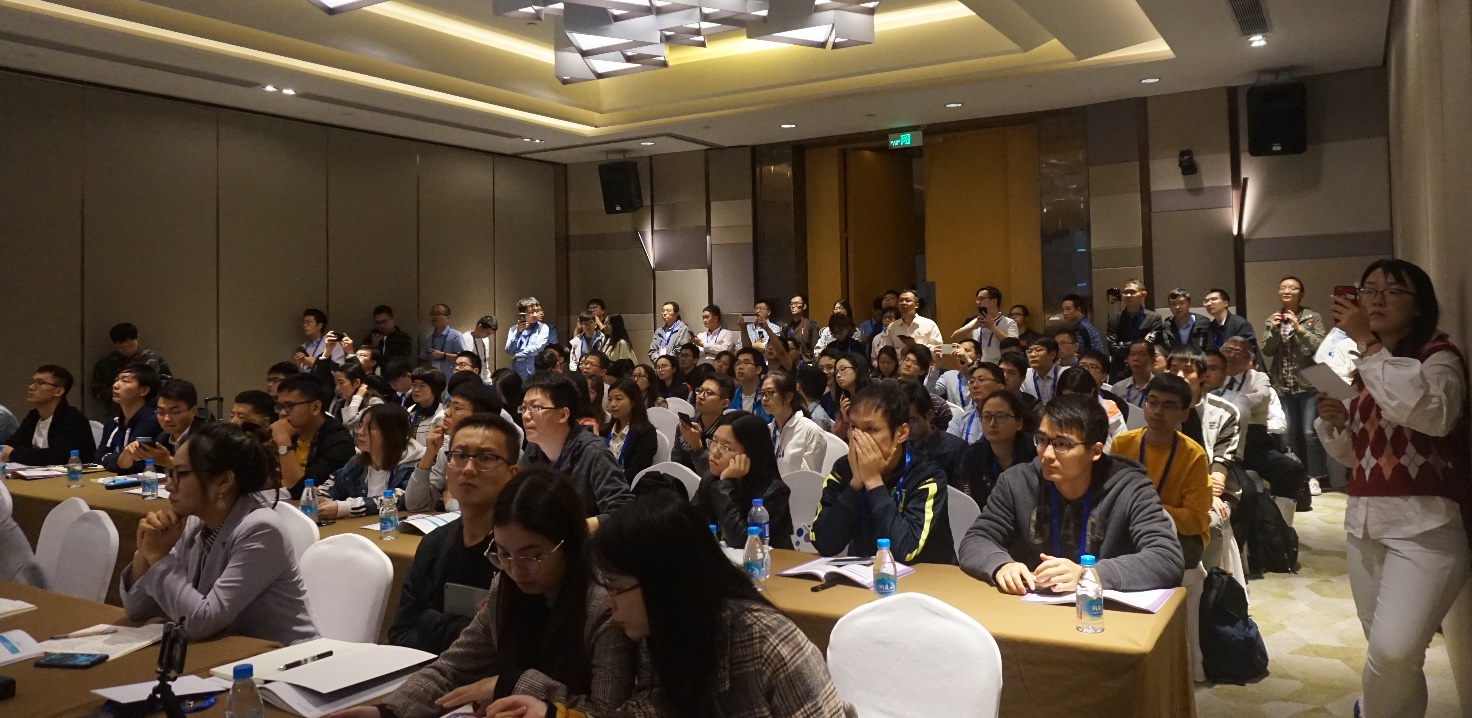
Parallel session of Flex China 2019
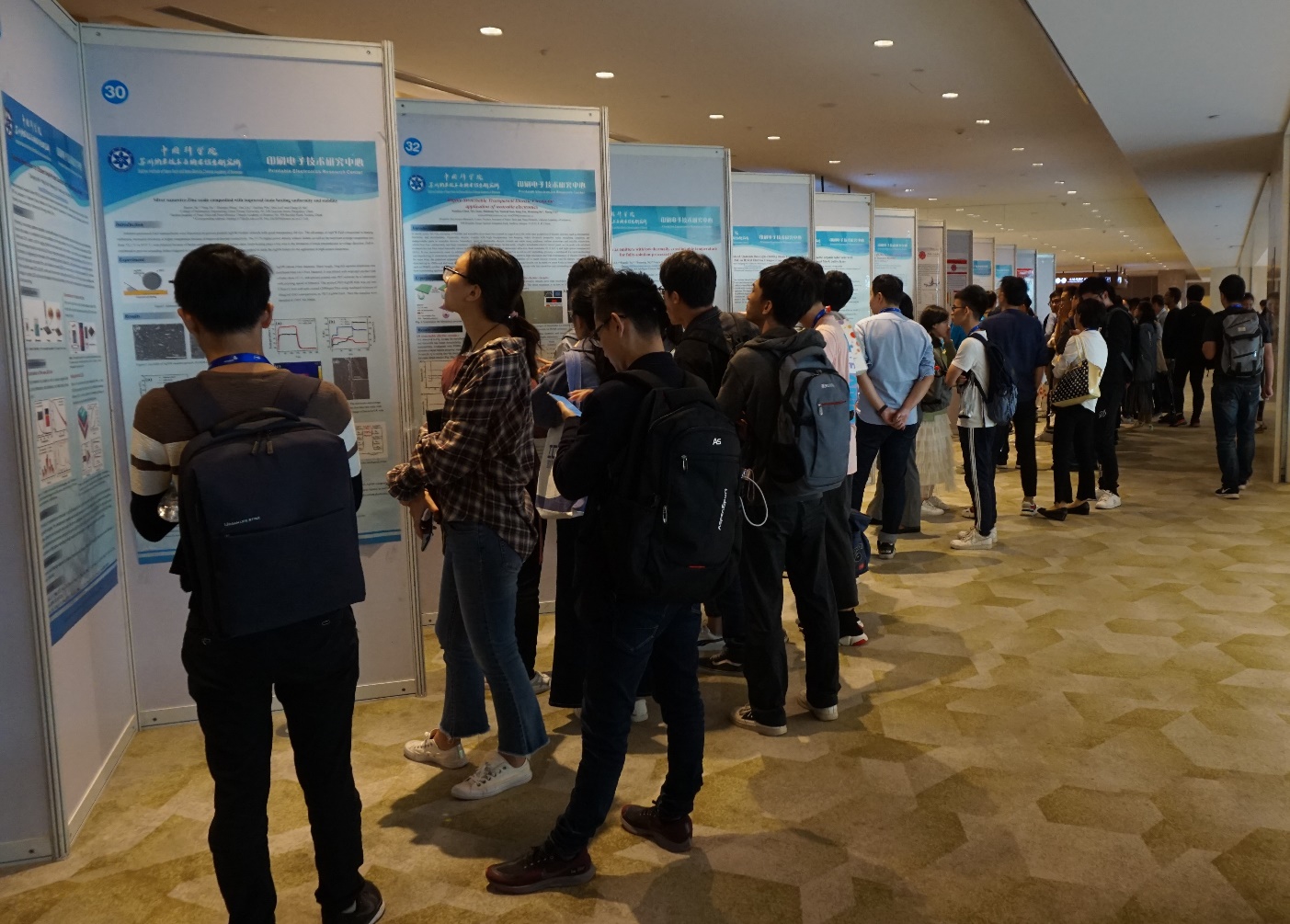
Poster session of Flex China 2019
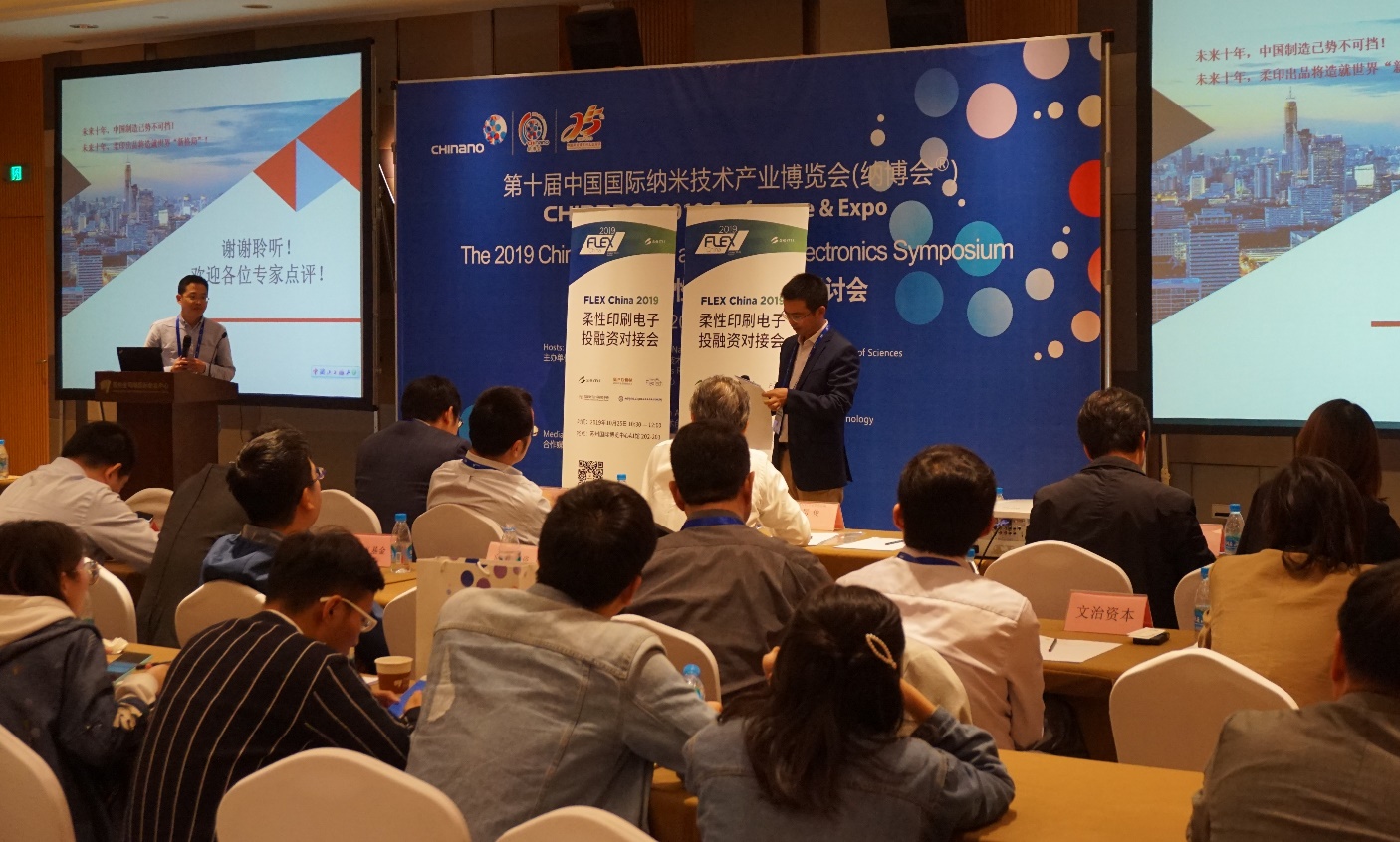
Industry roadshow at the Flex China 2019
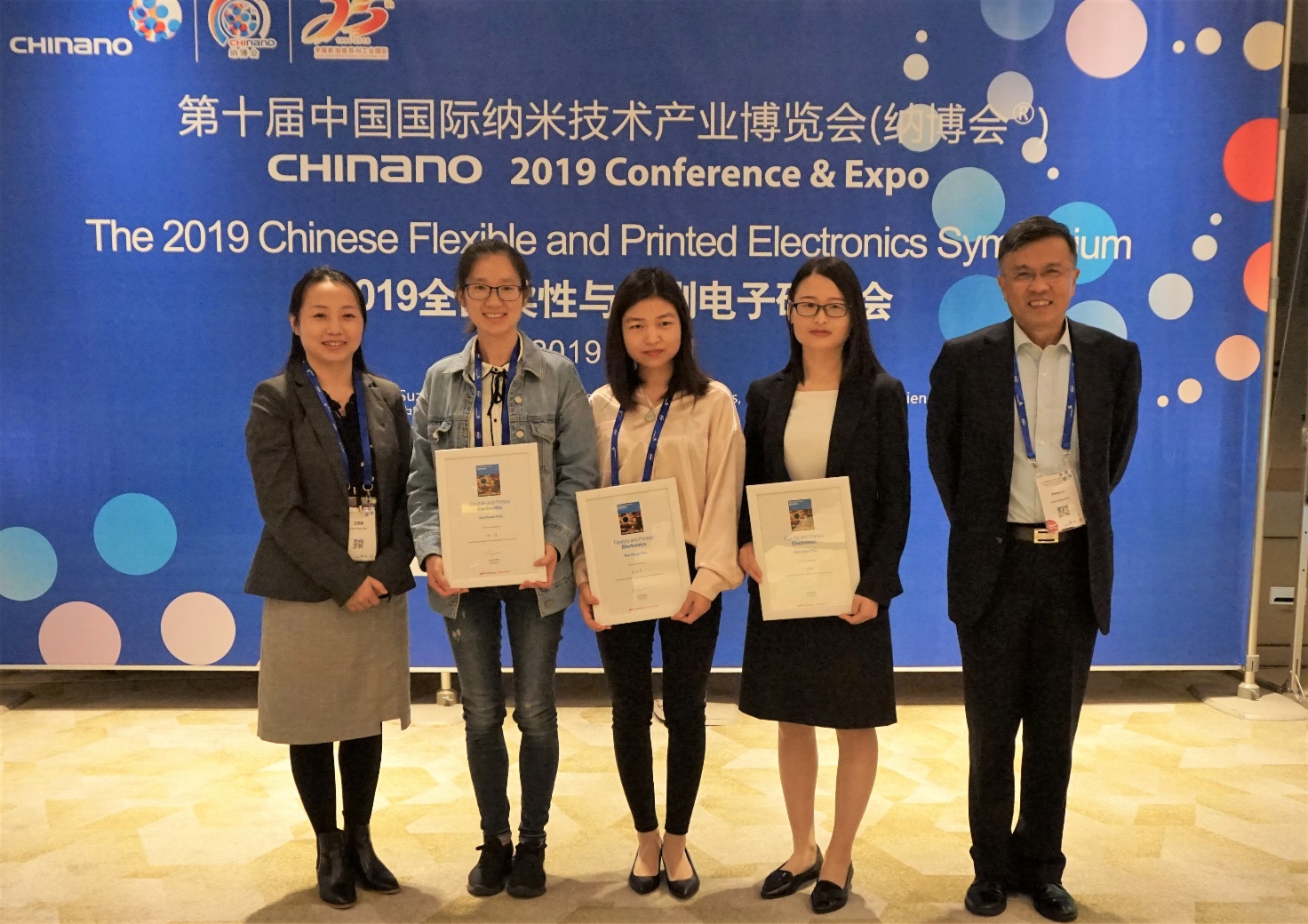
Best poster awards winner at the Flex China 2019

